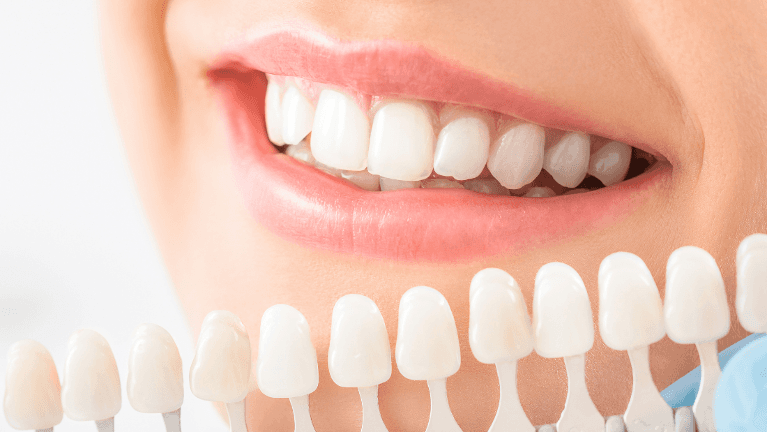
Dental crowns are a cornerstone treatment in modern dentistry. They are vital for preserving function and aesthetics when teeth are severely damaged or vulnerable. This blog discusses the difference between temporary and permanent crowns to explain the purpose of each and their benefits.
What Are Dental Crowns?
Before getting into the specifics of temporary versus permanent, it’s necessary to understand what a dental crown is and why it’s such a fundamental dental tool. A dental crown is classified as a restorative dental prosthetic that encapsulates compromised teeth and can be used in numerous scenarios.
You can think of dental crowns as custom-made caps that go over a carefully prepared tooth, covering it from the gum line up. Dentists use crowns to perform numerous functions, which can include:
- Restoring the shape, size, and strength of a damaged tooth
- Providing a natural appearance that blends in with your other teeth
- Protecting weakened or broken teeth from extensive, irreparable damage
- Covering a dental implant to protect it from wear and tear
When you hear your dentist recommend a temporary crown, you may think there is a choice between temporary and permanent, but the truth is that you will need a permanent crown eventually. Permanent dental crowns can take several weeks to manufacture, so dentists place temporary crowns to protect the tooth in the interim.
Temporary Crowns
Temporary dental crowns serve as protective coverings while the lab manufactures your permanent crown. Temporary crowns play a critical role in the process and provide benefits that include:
- Protection: shielding the vulnerable, repaired tooth from potential damage.
- Aesthetics: maintaining the appearance of a natural tooth while waiting for the permanent crown.
- Function: allowing the patient to eat and speak normally.
Characteristics of Temporary Crowns
Temporary crowns are typically made using a less durable version of the materials used to make permanent crowns, so they have a similar appearance. However, the color may be slightly off, as temporary crowns are not color-matched.
Temporary crowns break down faster and are not perfectly fitted to your tooth, so they don’t hold up to daily wear and tear as long as permanent crowns do. This usually isn’t a problem because they only need to last until your permanent crown is ready, which can take 2-12 weeks.
Even though the temporary crown won’t be there forever, it is still vital to maintain diligent dental hygiene as if it were your natural tooth. Caring for your temporary crown can extend its lifespan and prevent early degradation, so brush your teeth and floss daily.
While your temporary crown is in place, you should avoid sticky foods like chewing gum and caramel. Eating hard food like nuts or chewing ice can also fracture or dislodge the crown, so it's essential to know what you eat and which side of your mouth you chew on. If the temporary crown is broken or comes off, your natural tooth will be vulnerable to heat, cold, and potentially further damage.
Permanent Crowns
Permanent dental crowns are custom-made to fit your tooth perfectly and line up comfortably with your other teeth. They are made from premium materials that provide long-term restoration and protection, shielding the tooth below it from further damage. Depending on your chosen material, permanent crowns can also be precisely color-matched to blend in with natural teeth.
You can choose from several materials: gold, ceramic, porcelain, and stainless steel. Materials that can be color-matched, like porcelain and ceramic, are typically used towards the front of the mouth, where the teeth are more visible. Gold and metal options can be more durable, and dentists usually use them at the back of the mouth, where the teeth are hidden while being responsible for chewing.
Your dentist will use impressions or digital scans to create a custom mold of the opposite tooth to ensure an aesthetic match and comfortable fit. Due to the strong materials used, they can last for up to 15 years or more. Some of the factors that can affect the lifespan of your crown include:
- Oral hygiene - brushing and flossing are vital to maintaining your crown
- Teeth grinding and jaw clenching - pressure can cause the crown to fracture
- Dietary choices - acidic foods can speed up the degradation of your crown
- Material - the substance used to make your crown can determine the lifespan
Regular checkups and hygiene are crucial when you have a crown to ensure it remains correctly positioned.
The Vital Role of Dental Crowns
For personalized advice regarding dental crowns, contact Dr. Nargiz Zadeh to schedule a comprehensive dental assessment. Our practice is dedicated to providing exceptional dental care, using the latest advancements in dental technology and materials to help you achieve and maintain optimal oral health.